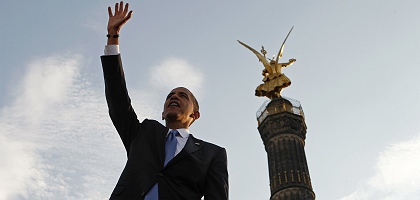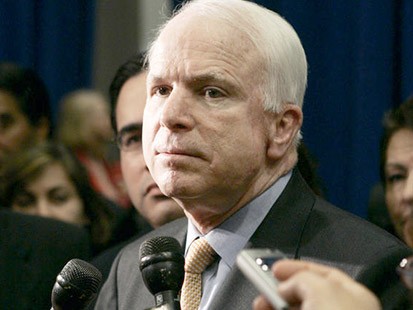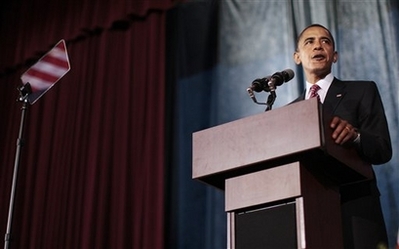
|
History has led us to a new crossroad, with new promise and new peril. When you, the German people, tore down that wall — a wall that divided East and West; freedom and tyranny; fear and hope — walls came tumbling down around the world. From Kiev to Cape Town, prison camps were closed, and the doors of democracy were opened. Markets opened too, and the spread of information and technology reduced barriers to opportunity and prosperity. While the 20th century taught us that we share a common destiny, the 21st has revealed a world more intertwined than at any time in human history… Now the world will watch and remember what we do here — what we do with this moment. Will we extend our hand to the people in the forgotten corners of this world who yearn for lives marked by dignity and opportunity; by security and justice? Will we lift the child in Bangladesh from poverty, shelter the refugee in Chad, and banish the scourge of AIDS in our time? Will we stand for the human rights of the dissident in Burma, the blogger in Iran, or the voter in Zimbabwe? Will we give meaning to the words “never again” in Darfur Will we acknowledge that there is no more powerful example than the one each of our nations projects to the world? Will we reject torture and stand for the rule of law? Will we welcome immigrants from different lands, and shun discrimination against those who don’t look like us or worship like we do, and keep the promise of equality and opportunity for all of our people? People of Berlin — people of the world — this is our moment. This is our time.” |
After stops in Kuwait, Afghanistan, Iraq, Jordan, and Israel, Sen. Obama takes his message to the heart of Berlin, before a crowd of over 200,000 at the Brandenburg Gate. [Video | Transcript.] As Der Spiegel‘s chief foreign desk editor put it after the speech: “No. 44 has spoken.”
Well, let’s make sure we all do our part on Election Day first. Still, it’s safe to say the Obama World Tour has been knocked out of the park so far. Between this and Iraq’s backing of the Obama plan earlier in the week, McCain’s chances are, at least to my mind, looking downright dismal these days. And whining about the press, a.k.a. the mythical maverick’s former “base”, isn’t going to right the ship for the GOP. Yep, all in all, things are looking pretty good for November…and beyond.
(By the way, when Sen. Obama isn’t making the case for world peace, he’s also got a pretty sweet jumper.)




